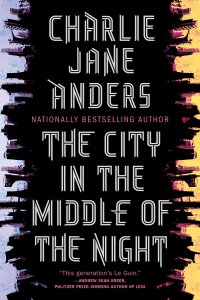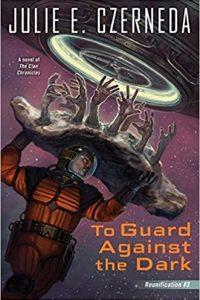Jake Casella Brookins Reviews Other Minds and Other Stories by Bennett Sims

Other Minds and Other Stories, Bennett Sims (Two Dollar Radio 978-1-9533-8735-6, $18.95. 202pp, tp) November 2023. Cover by Eric Obenauf.
Other Minds and Other Stories, the new collection from Bennett Sims, is a must-read: a startling, insightful blend of horror and humor, thoughtful and unpredictable. Many of the stories here are about the psychologies of writing, and of reading, the very strangeness of trying to record thoughts or transcribe reality, of deducing or imputing other readers. In the title story, ‘‘Other Minds’’, the narrator sits with an ebook, agonizing over what’s implied by the passages other readers have highlighted. There’s a kind of misanthropy at work here – whether being lampooned or merely explicated is not entirely clear – and it is, at any rate, sympathetic.
Art itself – museum and gallery objects, sculpture – are a recurring concern in the collection, and prompt what’s perhaps the most exemplary piece here, ‘‘Portonaccio Sarcophagus’’. The action takes place entirely in the narrator’s mind as he sits in a museum, contemplating the sculpted surface of the titular object. The associations called forth by a curiously blank-faced figure take the narrator through a speculation on history to family memories, the blurred-photo portents of The Ring, the unintentional creepiness of Google Street View, and a premonition of the next time he meets his senile mother; the ideational and emotional range Sims packs into these short musings is really impressive, and haunting.
Introspection and horror come together most strikingly in ‘‘An Introduction to the Reading of Hegel’’, the scariest and the funniest story in the collection: My urge to scream, for one reason or another, was very high for practically every line. Like ‘‘Other Minds’’, the protagonist is simply ‘‘the reader’’ – here, a philosophy professor trying to write an application letter, stymied by his own appalling philosophy of writing and of empathy. Appalling and, for anyone who has ever struggled self-consciously to write, I suspect, intensely recognizable: the reader has a concept of writing for someone, and, in making that hypothetical reader in his head, he imagines the harshest critic imaginable:
Before you could write a worthwhile sentence, you had to become the sentence’s nemesis. You had to occupy the place of a predatory or an editorial consciousness, hating yourself before the other had a chance to, to spare them the hatred altogether… Whenever he read a writer’s sentence that he hated, he knew that what he was encountering was a failure of empathy, a glitch in intersubjectivity.
The story is crammed with these kinds of lines – a mélange of self-doubt, procrastinative rationalization, and flagellating jealousy, and wrapped up in a frighteningly complete theory of mind, and of writing. It’s at once immensely comedic and, for a writer, genuinely terrifying, and it closes with a scene right out of horror cinema, the darkness closing in.
There’s a similarly filmic trope in ‘‘The Postcard’’, which is one of the only stories in the collection to have something like a recognizable plot. Outside a few Lynchian or slasher-film-like moments, though, it’s very much in a Paul Auster vein, delightfully so, with a nested and shifting set of mysteries and doppelgängers, eerie GPS directions sounding through fog-shrouded scenes. The impersonal and uncanny face of technology, in something as banal as a cellphone, also crops up in ‘‘Unknown’’, a tale of domestic paranoia; unlike the unsettling perception of ‘‘Other Minds’’, here it’s the inability to know the other that elicits a sense of dread. Horror is also very close to the surface, perhaps unsurprisingly, in ‘‘A Nightmare’’, a brief and genuinely surreal vision of a kind of sculpture of abandoned shopping carts in a field, one that pulls the nameless narrator (dreamer?) towards ever more disturbing imagery, howsoever unclear – mundane objects notwithstanding, the ominous atmosphere and verbosely panicky narration here are like something out of Frank Belknap Long.
Sims’s voice throughout these stories is delightful: often a stream of consciousness that lends itself to rapidly developing affects, sometimes a carefully distanced and almost inhuman third person. Many of the stories here are very short, and sometimes lack paragraph breaks, which works very well for their internal momentum; and, though the characters are largely unnamed, barely sketched, they have an immediacy and a thoughtfulness that convinces. Even as their thoughts spiral off on surprising or disturbing tangents, they’re recognizably, and organically, someone really thinking. Much of the horrific in the collection, or at least the uncanny, is in perceiving, in the very act of perception: to imagine other minds is to be appalled by them; to see or imagine some grotesque vision is to be overcome by it.
However, take just one step to the side and it’s clear that Sims’s stories are also intensely funny – it’s not so much that he makes big tonal changes from the horrific as that, in style and substance, the very same sections can read as comic. This productive tension is particularly close to the surface in ‘‘Pecking Order’’, in which a well-meaning attempt to kill some chickens devolves into a bloody debacle: the brute animal atrocity, and the human animal capable of it, are right there in your face, but so also is the slapstick, incongruous, socially satirical comedy. It’s an incredible double-edged style, and a strangely self-reinforcing one – as with ‘‘An Introduction to the Reading of Hegel’’, much of Other Minds and Other Stories left me astonished at how fluidly it moves between the contemplative and the hysteric.
Jake Casella Brookins is from the Pennsylvania Appalachians, and spent a fantastic amount of time in the woods. He studied biology, before switching over to philosophy & literature, at Mansfield University. He’s been a specialty coffee professional since 2006. He’s worn a lot of coffee hats. He worked in Upstate New York and Ontario for about 8 years. He’s been in Chicago since 2013; prior to the pandemic, he worked for Intelligentsia Coffee in the Loop. Starting in 2021, he’s been selling books at a local indie bookstore. He lives with his wife, Alison, and their dogs Tiptree & Jo, in Logan Square.
This review and more like it in the February 2024 issue of Locus.
 While you are here, please take a moment to support Locus with a one-time or recurring donation. We rely on reader donations to keep the magazine and site going, and would like to keep the site paywall free, but WE NEED YOUR FINANCIAL SUPPORT to continue quality coverage of the science fiction and fantasy field.
While you are here, please take a moment to support Locus with a one-time or recurring donation. We rely on reader donations to keep the magazine and site going, and would like to keep the site paywall free, but WE NEED YOUR FINANCIAL SUPPORT to continue quality coverage of the science fiction and fantasy field.
©Locus Magazine. Copyrighted material may not be republished without permission of LSFF.






